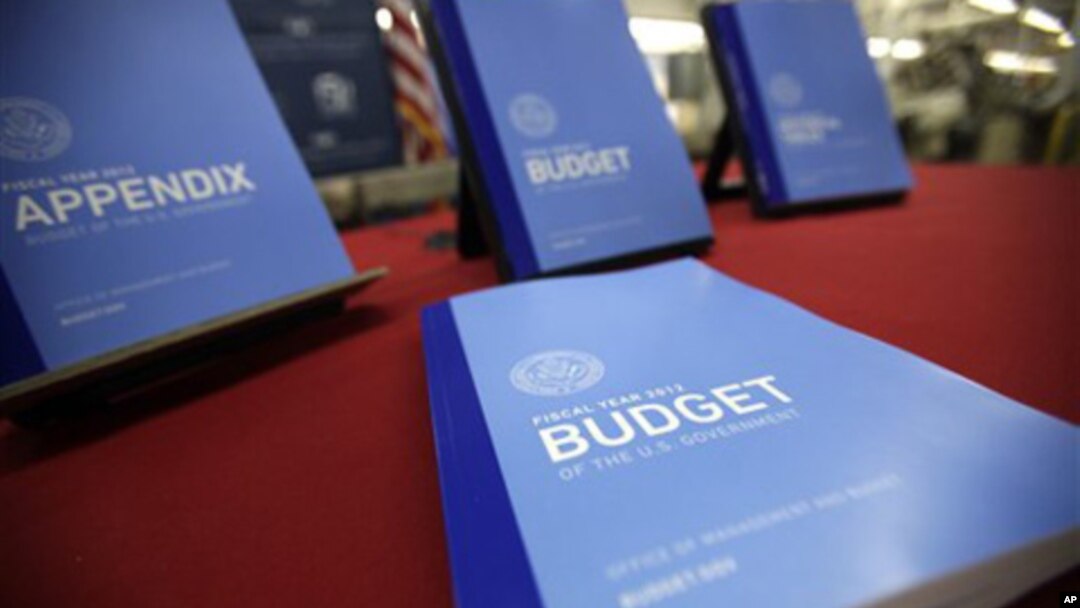A political showdown over the U.S. Federal Budget reaches a critical point in Washington this week. President Barack Obama and his Democratic allies are trying to reach an agreement with Republican congressional leaders to temporarily keep the government running past Friday, when the current funding bill expires. The budget battle is expected to dominate the domestic political agenda for the foreseeable future.
The budget fight has been building since Republicans won control of the House of Representatives in last November’s midterm election.
There are huge differences between Republicans and Democrats over not only the size of the budget cuts needed, but also the role of the federal government in people’s lives.
Republicans insist last year’s election results show Americans want to severely cut back on government spending and take steps to reduce the national debt, which is more than $14 trillion.
President Obama and his Democratic allies in Congress counter that the size of the cuts Republicans want would harm the economy and place hardships on citizens who depend on government help.
But the president told state governors that both sides need to find common ground. "It is going to be a tough conversation to have, but it is one we need to have, and one I expect to have with congressional leaders in the weeks to come," he said.
The national debate over spending and the size of government is also taking place at the state level. Republican governors in particular are pushing to scale back state-government spending and, in some cases, move to limit the right of public-employee unions to negotiate on issues like pensions and health care.
New Jersey’s Republican governor, Chris Christie, told the CBS program Face the Nation that he believes Americans are looking for political leadership to make difficult cuts in federal and state budgets. "And I think the people of the United States are ready for a frank, adult conversation about it. I have seen that in New Jersey. I have done a lot of things that people say, 'I do not like, but I am glad you are taking it on because you have to, because we know we are in trouble," he said.
Analyst Bill Galston of the Brookings Institution says the budget debate will dominate this year’s political agenda, and could carry over into next year as well.
Galston says the public will also have a major role in the debate and is concerned with two key issues. "Number one, people are worried about the level of spending and the amount of borrowing the United States government is doing. And number two, they do not want the government to shut down," he said.
The last government shutdown occurred in late 1995 and early 1996 when then-president Bill Clinton and Republican congressional leaders sparred over the budget.
Republicans have some unpleasant memories of that showdown, says John Fortier of the American Enterprise Institute, a guest on VOA’s Encounter program. "They are mostly, especially the leaders, not looking for a shutdown. They saw in 1995 that it did not work that well in their conflict with President Clinton. President Clinton came out in the world of public opinion better for that conflict," he said.
Brookings analyst Bill Galston says how the budget showdown plays out politically will have a big impact on next year’s presidential campaign. "What happens in 2011 will define to a very substantial degree the terrain of the conversation and the terrain of the political battle in 2012. So this is a game for very high stakes and both sides know it," he said.
And Galston adds that the budget showdown is being closely watched overseas as well. "The rest of the world is looking at the United States and asking a version of a very fundamental question, namely, 'Does the world’s oldest democracy have the capacity to govern itself?"
The immediate debate deals with what kind of additional cuts should be made to this year’s federal budget, which runs through September. Once that is settled, lawmakers and the president will turn their attention to Mr. Obama’s 2012 budget plan that calls for $3.7 trillion in spending, an amount Republicans believe is far too high.


